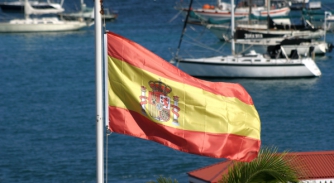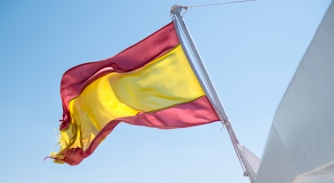VAT in Spain explained
Evolution Yacht Agents outlines a simple guide to the often misunderstood VAT laws that govern chartering and bunkering in Spain…
Value Added Tax (VAT) in Spain is a consumption tax imposed on the sale of goods and services within the country. It is a crucial component of the Spanish tax system and plays a vital role in generating revenue for the government. The VAT is levied at different rates depending on the type of goods or services, with three main categories: the standard rate, reduced rate, and super reduced rate.
The standard rate typically applies to most goods and services, while the reduced and super-reduced rates are applied to essential items and services such as food, medicine, and public transportation. The revenue collected from VAT contributes significantly to maintaining a stable economy and ensuring the government's ability to provide essential services to its citizens.
VAT applied to charter:
Regarding superyachts conducting charter activities in Spain, the boat owner must have the authorization to engage in commercial activities in Spain. To achieve this, they must register with the tax authorities. Once registered with the tax agency, the charter license must be requested from the Port office, and the owner will have the right to rent out their vessel for recreational purposes once the authorization is granted by the authorities.
Charter licenses are issued by the port authority, and as your chosen yacht agency, Evolution Yacht Agents can handle the procedure on your behalf for a smooth and hassle-free experience.
To register a vessel for commercial use, it is required to pay 12% of its value to the Spanish tax authorities or Hacienda. There is a system in place for the boat and company to be exempt by following the required license regulations.
In summary, the most important part of engaging in commercial activities is to receive good advice and seek a professional who can review your complete tax status, obligations, and advantages. Evolution can provide you with this guidance and assistance for your commercial status.
VAT applied to fuel:
Regarding taxes applied to fuel, all vessels wishing to bunker in Spanish waters will have to pay a 21% VAT if the fuel is supplied by a Spanish provider in Spain. The nearby ports where bunkering can take place while being exempt from this tax are Gibraltar, Algeria, and France, where Evolution can assist you with the process.
Main image credit: Evolution Yacht Agents
Profile links
NEW: Sign up for SuperyachtNewsweek!
Get the latest weekly news, in-depth reports, intelligence, and strategic insights, delivered directly from The Superyacht Group's editors and market analysts.
Stay at the forefront of the superyacht industry with SuperyachtNewsweek
Click here to become part of The Superyacht Group community, and join us in our mission to make this industry accessible to all, and prosperous for the long-term. We are offering access to the superyacht industry’s most comprehensive and longstanding archive of business-critical information, as well as a comprehensive, real-time superyacht fleet database, for just £10 per month, because we are One Industry with One Mission. Sign up here.
Related news

Formentera yacht engulfed in blaze
Passengers and crew scrambled to abandon ship as a 28m Astondoa yacht was destroyed in a fire whilst it was anchored off the Balearic Island
Owner

AcqueraPro: streamlining onboard operations
Say hello to AcqueraPro: the ultimate digital platform for yacht captains, their crew and management companies
Crew

Breakthrough on Spanish charter licensing
Lawyer and economist Miguel Ángel Serra explains the significance of a simplified charter licence that should be in place for the 2023 season
Crew

Spanish yacht market yet to realise full potential
Lawyer & Economist, Miguel Ángel Serra, proposes a strategy to help evolve the Spanish yacht market
Opinion

Tax relief for non-EU yachts
Evolution Yacht Agents explains how non-EU yachts can gain 21% tax relief under TPA while moored in Spain
Business
Related news
Formentera yacht engulfed in blaze
3 years ago
AcqueraPro: streamlining onboard operations
3 years ago
Breakthrough on Spanish charter licensing
3 years ago
Tax relief for non-EU yachts
3 years ago
NEW: Sign up for
SuperyachtNewsweek!
Get the latest weekly news, in-depth reports, intelligence, and strategic insights, delivered directly from The Superyacht Group's editors and market analysts.
Stay at the forefront of the superyacht industry with SuperyachtNewsweek



